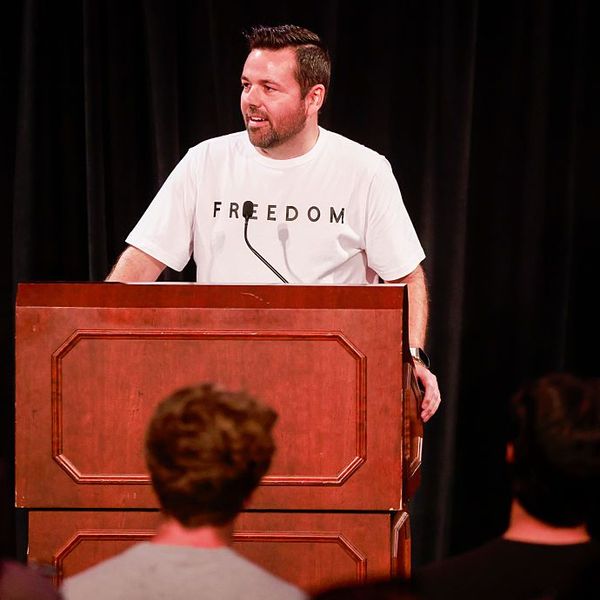In a victory for voting rights, a panel of federal judges ruled Monday that North Carolina's congressional map was unconstitutionally gerrymandered by Republican lawmakers and indicated that the GOP-controlled legislature should not be trusted to redraw the map--a task that could be undertaken before the November midterms, likely weakening the Republicans' hold on the U.S. House.
The ruling was celebrated by watchdog group Common Cause, which sued the state Republicans over the map, and other voting rights advocates--but came as no surprise in a state where Republican legislators had openly admitted to drawing congressional districts in order to favor their own party.
"Common Cause and our partners in this lawsuit took the fight to politicians who manipulate our democracy and we won," said Common Cause President Karen Hobert Flynn, in a statement.
Journalist Ari Berman, an expert on Republican efforts to disenfranchise voters, called the ruling a "big victory for voting rights."
Should the state Assembly appeal the decision, the case will go directly to the U.S. Supreme Court, with voting rights groups hopeful that the nation's top judges would once and for all end politicians' practice of drawing congressional districts to maintain their own power.
"Until we prohibit partisan gerrymandering, a true representative democracy will remain out of reach, and the voices of all Americans will continue to be silent." --Kathay Feng, Common Cause"We anticipate an appeal and are ready to turn legislators' brazen partisan gerrymander into a historic ruling in the Supreme Court to end the practice nationwide," said Hobart Flynn.
Republican State Rep. David Lewis told the North Carolina General Assembly in 2016, "I think electing Republicans is better than electing Democrats. So I drew this map to help foster what I think is better for the country."
With this in mind, Judge James A. Wynn Jr., speaking for the three-judge district court panel, suggested that a court-appointed expert could be asked to quickly draw new districts before the November midterms, a move that would have major implications regarding control of the U.S. House.
After the map is redrawn, according to this explainer by the Charlotte Observer, the state could hold general elections without party primaries or hold the November elections as a primary, moving the general election to a later date.
"We continue to lament that North Carolina voters now have been deprived of a constitutional congressional districting plan--and, therefore, constitutional representation in Congress--for six years and three election cycles," Wynn wrote. "To the extent allowing the General Assembly another opportunity to draw a remedial plan would further delay electing representatives under a constitutional districting plan, that delay weighs heavily against giving the General Assembly another such opportunity."
In 2016, a federal court struck down the state's 2011 congressional map after determining it was racially gerrymandered. But the new map that resulted from that decision was barely changed, with lawmakers like Lewis simply stating that they had resorted to partisan gerrymandering.
"Although North Carolina's loud and proud admission that legislators drew districts for partisan advantage is unusual, the practice is universal when politicians are in charge," said Common Cause national redistricting director Kathay Feng. "Until we prohibit partisan gerrymandering, a true representative democracy will remain out of reach, and the voices of all Americans will continue to be silent."



